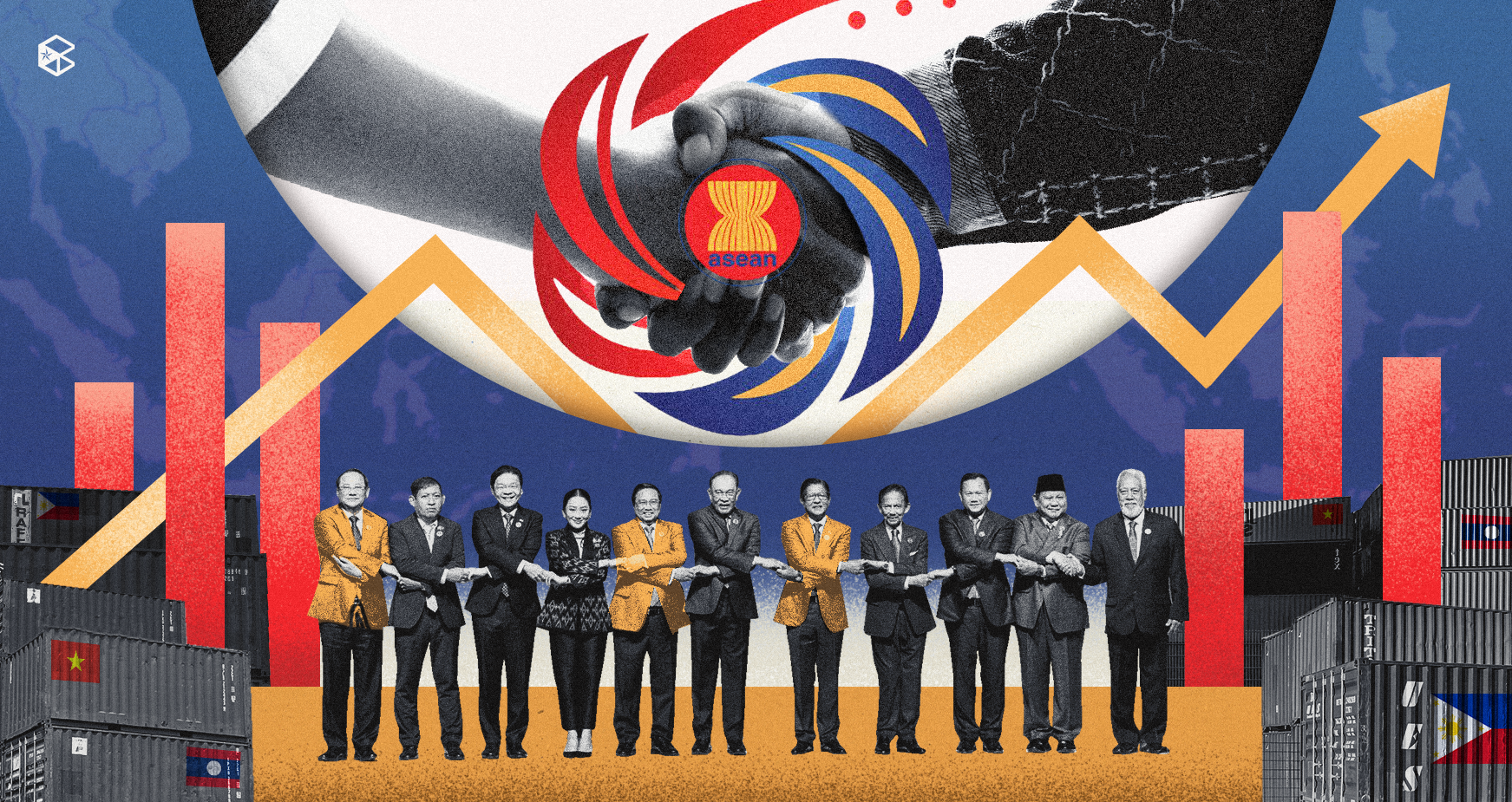President Ferdinand "Bongbong" Marcos Jr. navigated a complex geopolitical move at the 46th ASEAN Summit in Kuala Lumpur, Malaysia on May 26 to 28, forging significant bilateral alliances, pushing for economic resilience measures, and endorsing regional growth.
The Philippines emerged with definite diplomatic victories, including elevated relations with Vietnam and Laos, an ASEAN collective response versus U.S. tariffs, and backing for Timor-Leste's future membership. However, challenges arise in balancing economic interdependencies with China against escalating maritime tensions in the West Philippine Sea.
Elevating ties with Vietnam and Laos
The Philippines further solidified its Southeast Asian alignments by securing economic partnerships with Vietnam and Laos with the intention of raising current alliances to full-fledged frameworks.
During a bilateral visit with Vietnamese Prime Minister Phạm Minh Chính, Marcos announced the move to further advance their 10-year strategic alliance to a "comprehensive strategic partnership," with increased cooperation in agriculture, maritime security, and education. Vietnam, being a major rice exporter to the Philippines amid prevailing food security issues, will strengthen the economic trade between the two countries.
Meanwhile, Marcos and Laos Prime Minister Sonexay Siphandone commemorated 70 years of diplomatic relations and set priority cooperation areas in artificial intelligence, renewable energy, and tourism. Bilateral trade almost doubled to $13.72 million in 2024 from $7 million in 2019, but analysts note that the modest level reflects unutilized potential.
Marcos also met with Thailand Prime Minister Paetongtarn Shinawatra, the youngest Prime Minister of Thailand at 37 years old. “They talked about trade and economic relations, agricultural cooperation, and combating transnational crimes. This is their first bilateral meeting,” Presidential Communications Office Undersecretary Claire Castro said in an interview with Palace reporters.
Navigating U.S. tariffs and ASEAN unity
The ASEAN’s unified response to U.S. tariffs dominated economic discussion. US President Donald Trump's threat of a 17% tariff on Filipino products as part of a general protectionist policy encouraged Marcos to align with ASEAN's consensus to not reciprocate, but to negotiate instead.
The Philippines’ exports to the U.S., including electronics and agricultural products, face significant risks, but Marcos argued that a unified approach would strengthen the ASEAN’s negotiating power.
“Retaliating against the U.S. might isolate ASEAN further. Diversifying economic partners is key,” Francis M. Esteban, associate dean of the Far Eastern University’s Institute of Arts and Sciences, said in an interview with BusinessWorld.
“In a way, this is also ASEAN’s way of saying that it is open to strengthening its partnerships and engagements with other economic actors aside from the US,” he elaborated.
Meanwhile, Malaysian Prime Minister Anwar Ibrahim, ASEAN’s 2025 chair, revealed plans for a first-ever trilateral summit with China and Gulf Cooperation Council (GCC) states, aiming to diversify trade partnerships. Marcos supported the initiative, invoking its compatibility with Philippine initiatives to woo Gulf investments in infrastructure and alternative energy.
Calibrating regional security in the South China Sea
While not explicitly highlighted in official statements, the South China Sea dispute underpinned behind-the-scenes discussions. The Philippines reiterated its commitment to a rules-based order, citing the 2016 Permanent Court of Arbitration ruling that invalidated China’s claims. However, ASEAN’s draft communiqué avoided direct references to the ruling, reflecting divisions over how to address Beijing’s assertiveness.
“The stark difference between us and our neighbors, though, is the fact that we decided to bring it up to the Permanent Court of Arbitration,” ASEAN Studies lecturer Josue Raphael J. Cortez of DLS-CSB shared in an interview with BusinessWorld.
“Indonesia, on the one hand, given its vibrant ties with China, recognizes implicitly that they are also a state party to this, yet it has never become a subject of discussion between the two countries,” he added.
Recent incursions of Chinese coast guards around Pag-asa Island highlight persisting tensions, although Marcos stressed diplomatic recourse in plenary sessions.
Timor-Leste’s impending admission as ASEAN’s 11th member in October 2025 marked a historic milestone. Prime Minister Anwar confirmed the decision, pending final economic benchmarks. For the Philippines, Timor-Leste’s inclusion offers opportunities in energy and fisheries but raises questions about consensus-building in a larger bloc.
The Philippines departed Kuala Lumpur with tangible gains: stronger bilateral ties, a voice in Timor-Leste’s integration, and a tempered approach to U.S. tariffs. Yet challenges persist. As the Philippines prepares to assume ASEAN chairmanship in 2026, Marcos faces mounting pressure to translate commitments into actionable policies.
The ASEAN Summit 2025 highlighted the Philippines' new role as a regional balancer, balancing a tightrope of great-power competition with calls for collective resilience. Marcos' ability to navigate these cross-cutting priorities will shape his legacy and set the future of Southeast Asia in a disunited global order.


